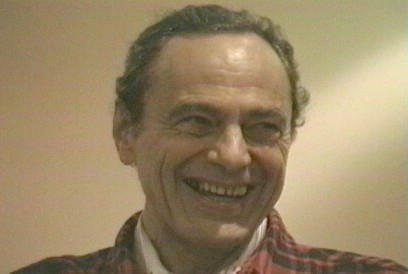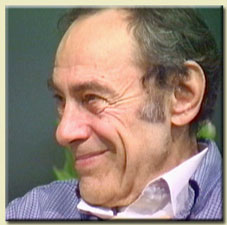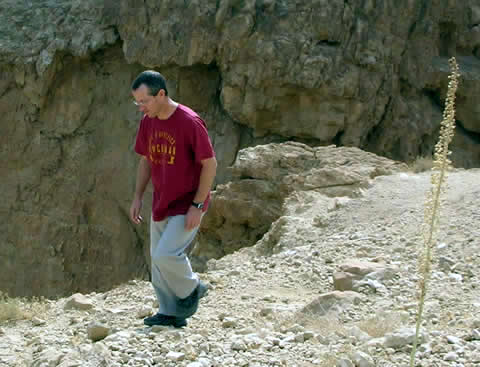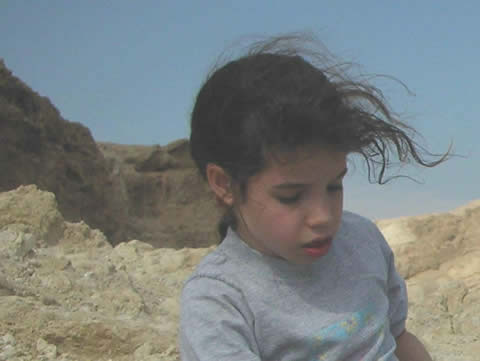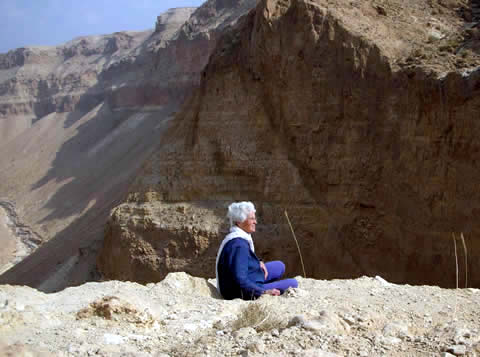|
Back to Overview of all sculptures in the fourfold library of "InteGRATion into GRATeFULLness"
![]()
InteGRATion into
GRATeFULLness
Nourishment from Others
2007_10_28
Focusing by Eugene T. Gendlin 1978
Most important: Gendlin's term of "The Felt Sense" ,
see a very concrete example in "Waking the Tiger" at the end of
that page
| First Page |
It was in October 2006, when my
old friend Yanina, urged me to read two "old" books,
that emphasize BODY,
Eugene Gendlin's book about "The Felt Sense"
and Peter Levine's
book "Waking the Tiger - Healing Trauma",
which is influenced by Gendlin.
Now , a year later, I want to re-read both books and re-create them on this
site.
|
|
From an introduction: Because of the radical changes we are undergoing
as a culture,
|
|
p.51
|
p.54 |

The first rain is approaching Nakhal
Tze'elim, the dry river-bed of Tze'elim.
Later the water will rush down into the Dead Sea.
p. 177
Focusing: Short Form
Hebrew Version in pdf-
format
See also "a lightly edited
excerpt from The Focusing Manual, chapter four of Focusing" on the Focusing
website
And "several
versions of Focusing Instructions in short form" by practitioners
1. Clear a space How are you? What's between you and feeling fine? Don't answer; let what comes in your body do the answering. Don't go into anything. Greet each concern that comes. Put each aside for a while, next to you. Except for that, are you fine? |
2. Felt sense Pick one problem to focus on Don't go into the problem. What do you sense in your body when you recall the whole of that problem? Sense all of that, the sense of the whole thing, the murky discomfort or the unclear body-sense of it. |
3. Get a handle What is the quality of the felt sense? What one word, phrase, or image comes out of this felt sense? What quality-word would fit it best? |
When you get a perfect match, |
When stuck, ask questions: What would it feel like if it was all
OK? |
Does your body want another round of focusing, |
Back to the beginning of the book "Focusing"
interspersed with
my questions, observations or experiences,
juxtaposed with images of the first rain in the desert
in 2006.

| p.10 p.12 I could sense that her agitated feelings were running off again.
p.13 p.14 p.15 "I feel better now. What a load to get
rid of!"
|
Shabbat, October 28, 2006, exactly
a year ago!
|

Two Khatzavim (sea squills - urginea maritima) seem to guard the grand riverbed of Tze'elim
|
p.16 The man who felt inappropriate p.17 p.18 He stayed with the vague discomfort. What he knew was this: Fred hadn't known what he had invested in the plan, but his body
knew.
|
Having seen such fantastic sculptures
in nature,
|

Father and son looking down the abyss
|
The Girl who was scared of college p.21 But focusing moves into the inside of a person. .. that being anxious about having no feelings was itself a feeling. p.23
p23 My thinking part had to stay hidden away because nobody wanted it. Instead she focuses on the whole sense of discomfort, p.24 if I come out I'll see it. No, people will see it, and I will see
it. p.25 This was the way school always was. This could happen only through changes in the way her whole organism
felt. p.26 ...a problem that had previously made your whole body feel bad. She made contact with a feeling p.27
|
Ayelet, Arnon's sister, helps
|
|
The Man who couldn't work p.28 "Well, no, that isn't it after all."
I always arrange it so I can get it out of
the way,
"Be with the odd sense of that blank.
What is its quality?" He asked into this sense of "not allowed". "Wow, now this finishing this book is
OK too.
|
Grandma on the abyss
More artistic rocks
|
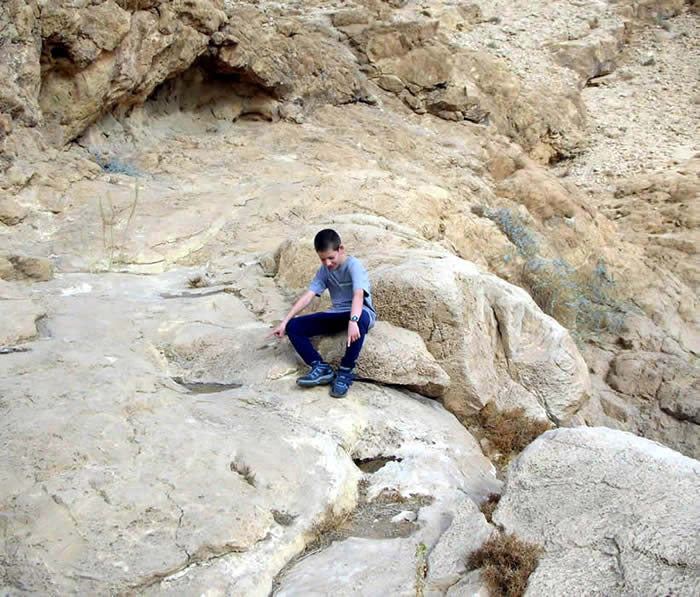
Finally Arnon discovers some puddles in the rocky floor. So there must have been rain after all!

| p.32 Chapter three: what the Body knows
p.34 The dominant emotion right now, let's say, is anger. p.35 An emotion is often sharp and clearly felt, The reaction bypasses your thinking mind almost entirely.
|
On our way back from Birket Tzfirah
we change a route,
|
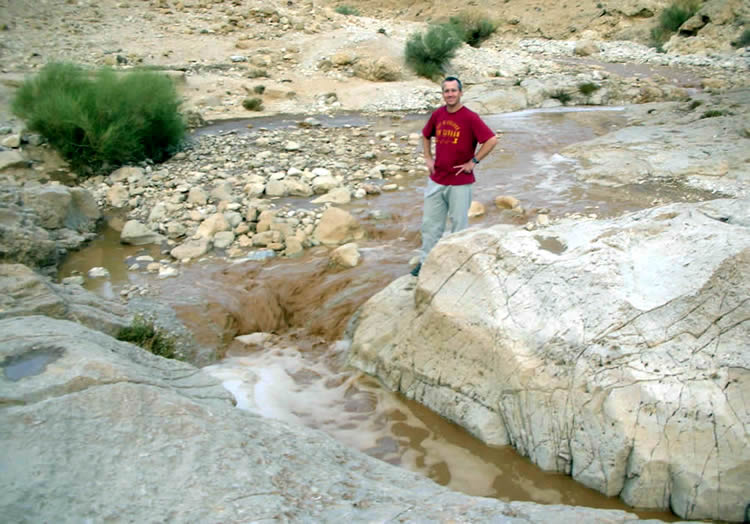
Micha and my beloved Rotem shrubs
| Belittling the problem A felt sense, when you focus on it well, has the power to change.
p.39 It feels like exhaling after holding your breath.
|
|

|
p.43 Chapter Four: The Focusing Manual 1. Clearing a Space Relax.. pay attention inwardly, in your body, stomach-chest. 2. Felt sense 3. Handle 4. Resonating
5. Asking
|
Ever new compositions |
| First Page |
to
former source of "Nourishment from Others"  to next
source of "Nourishment from Others"
to next
source of "Nourishment from Others"
…..
